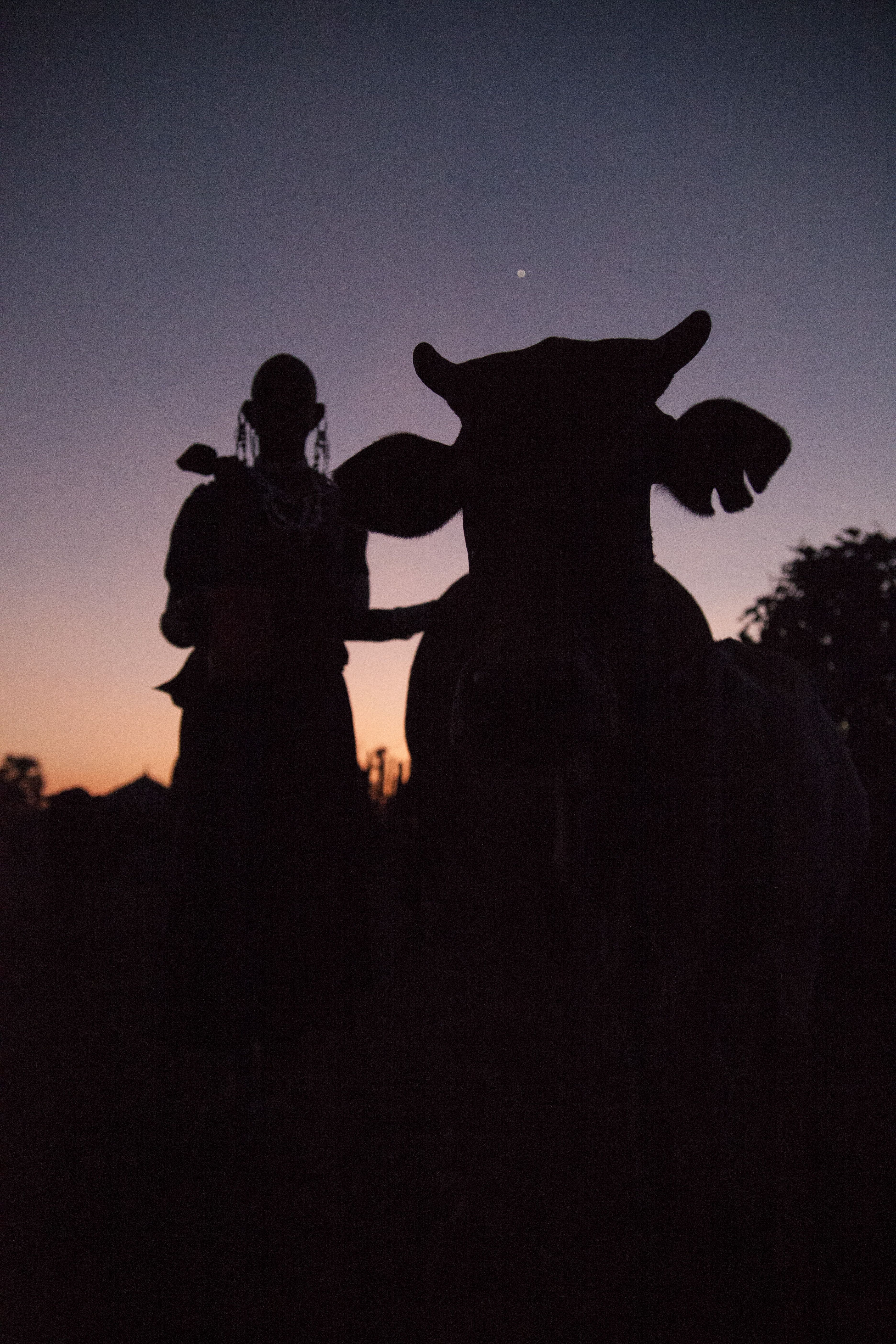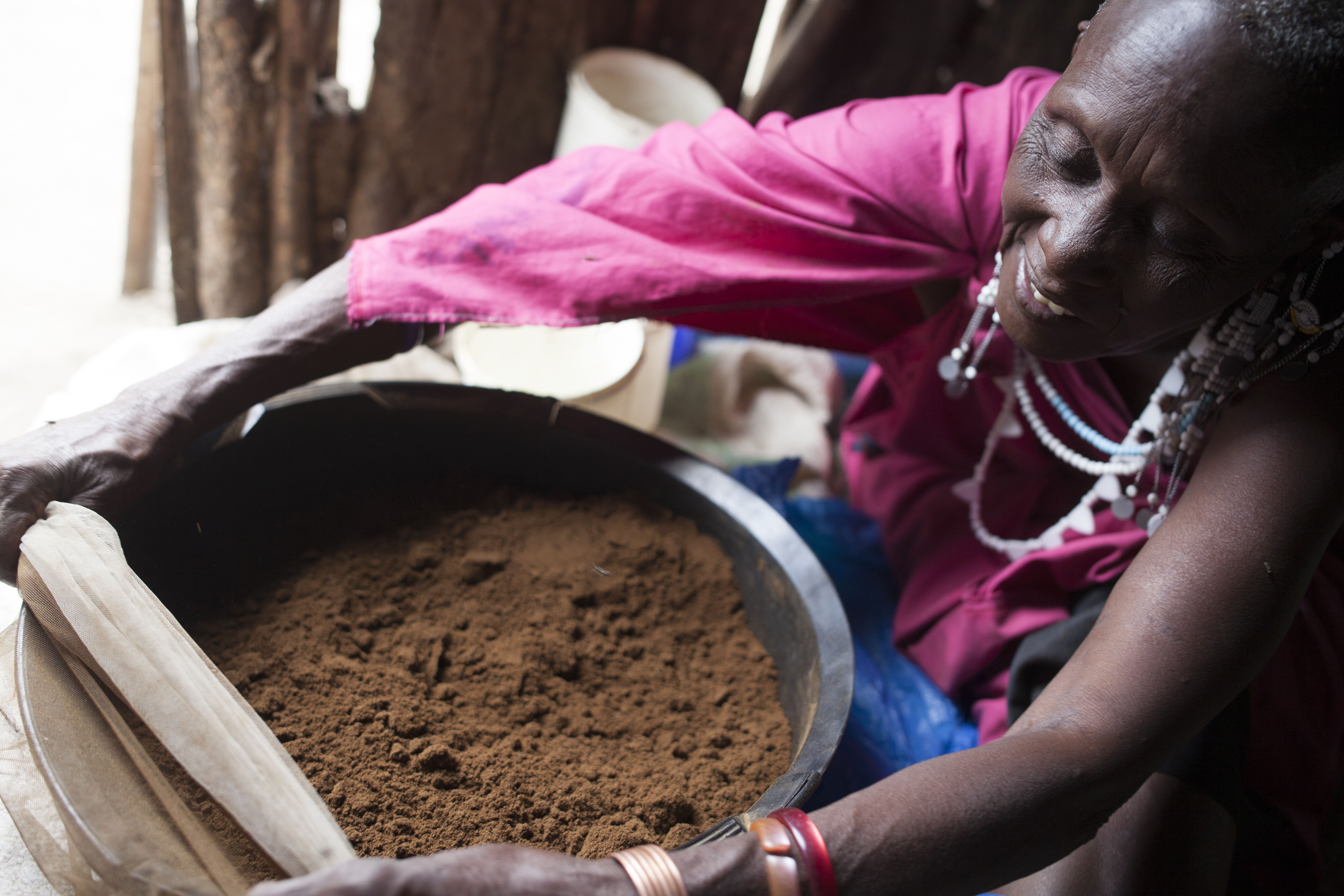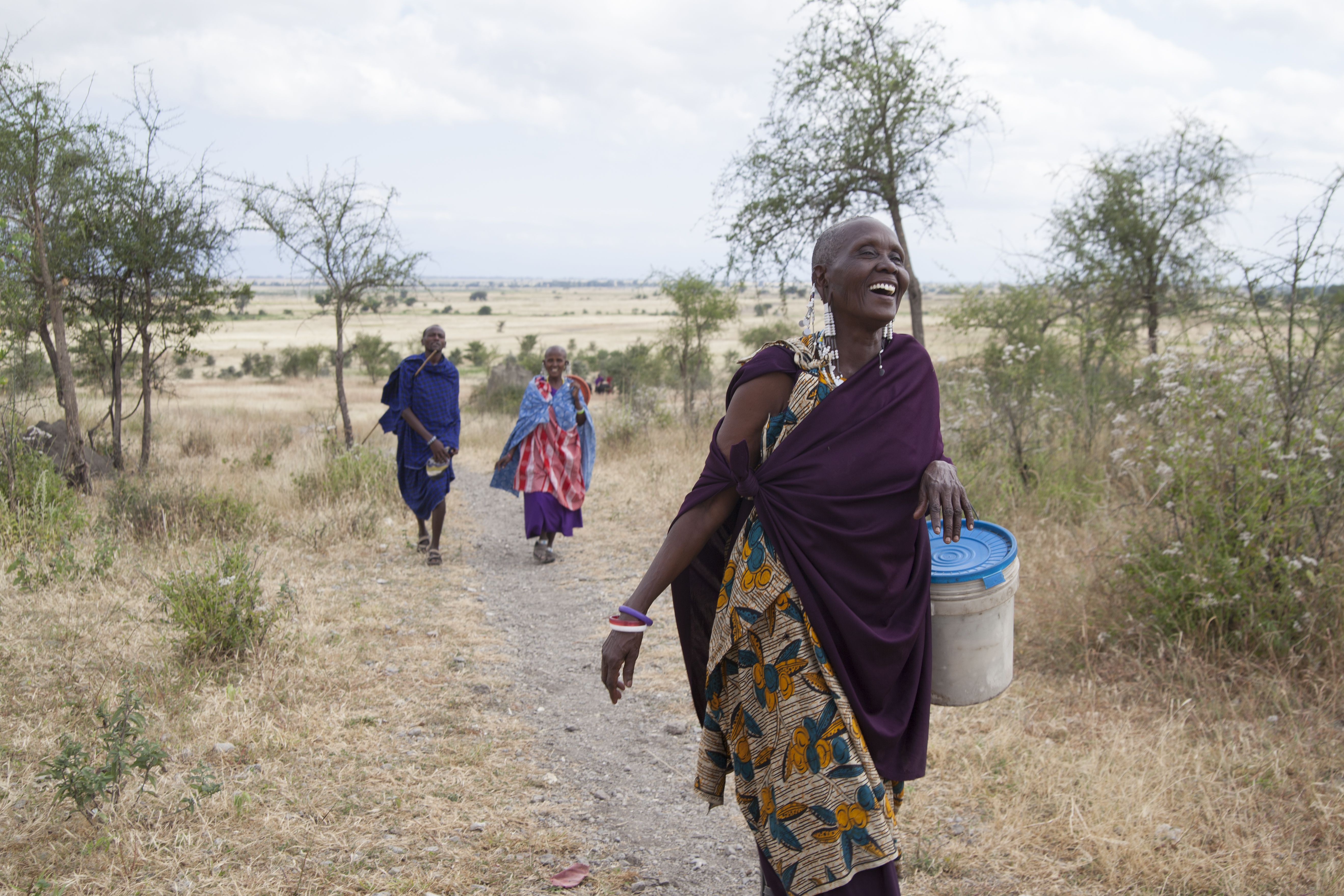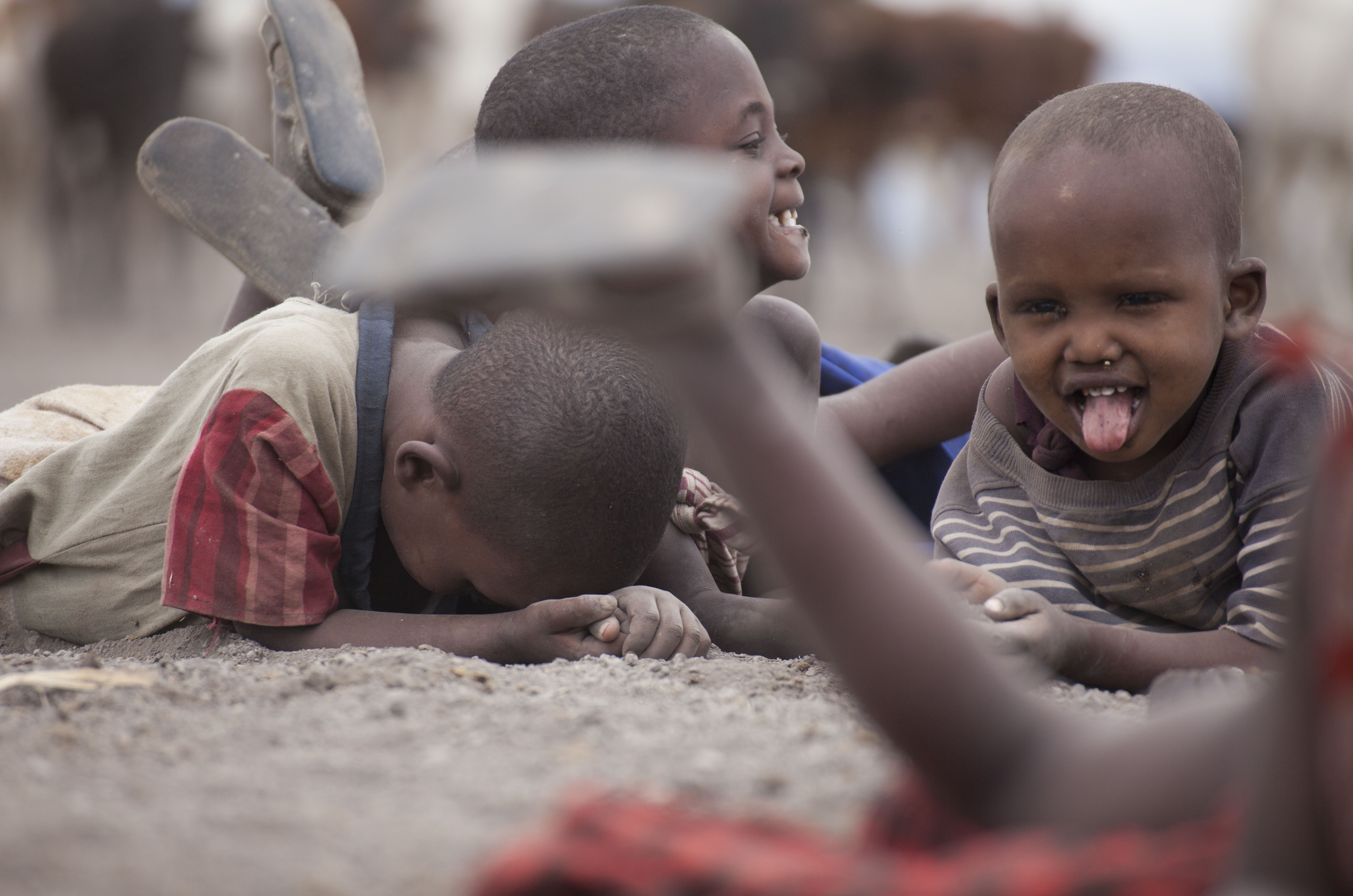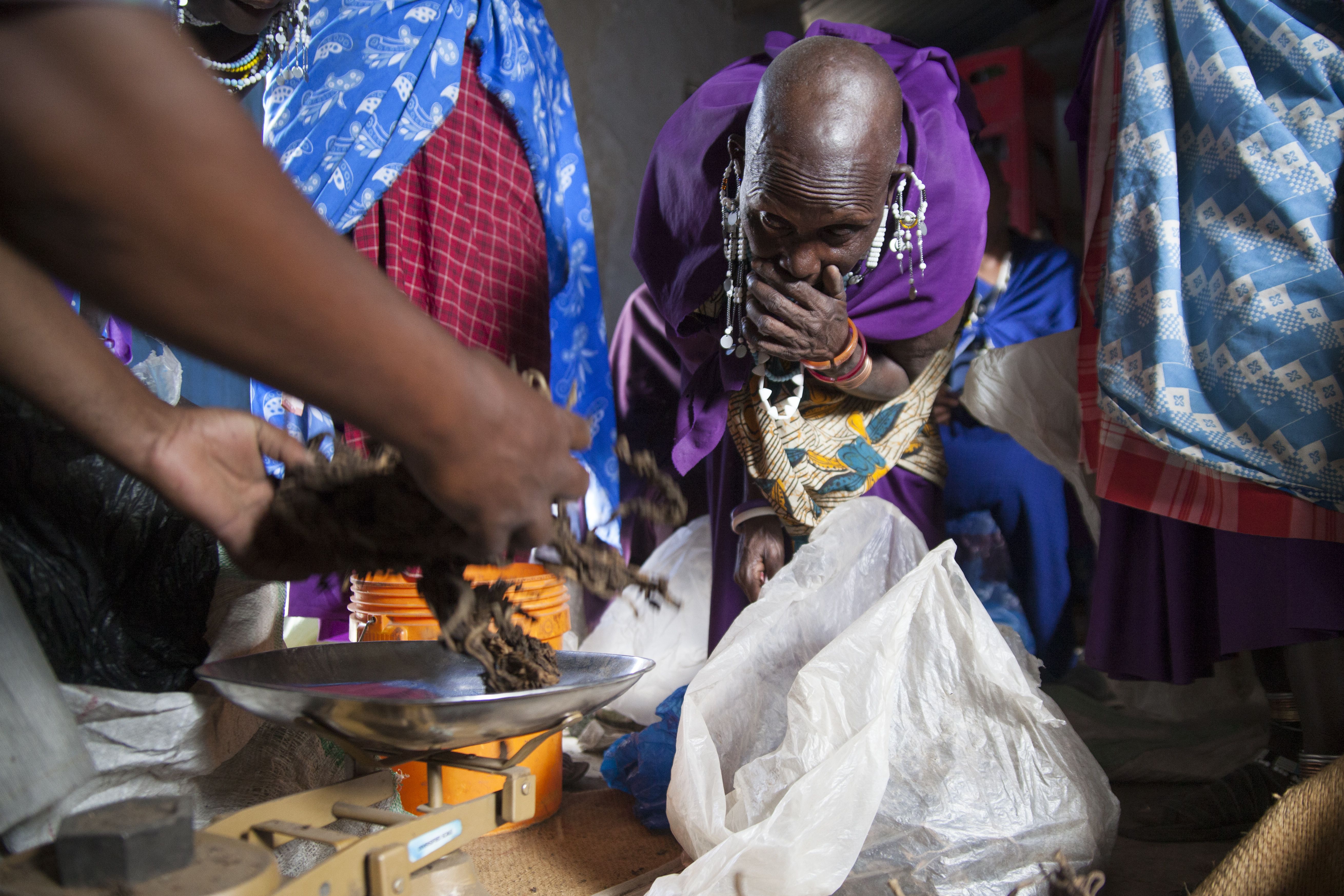Often given as gifts, a Maasai belt has hundreds of seed beads and dangling silver disks threaded onto a strip of leather. A belt can be made in a matter of days if one has a practiced hand and enough free time. At the moment, Serea Loamu has both. However, she would rather work to provide income for her family. With help from entrepreneurial women collectives in her village she may have her way soon—despite her husband’s wishes.
Serea Loamu is a mother of three and one of Laamo Kitende’s three wives—his youngest wife, unhappy in her marriage, has already run away once. Often unable to buy staples for her family, when Loamu approached her husband about increasing his wives’ weekly allowance he refused and forbade them from earning money on their own.
“He said that he doesn’t want to see his women doing business the same time he is,” she said through a translator while sewing another bead onto a belt.
Oloibulu Lekisamba, the first village chairman of Oltukai, Tanzania, agrees that Loamu’s situation is not unusual for the area. “They have a lot of problems but they take it as normal. For example, maybe they don’t have sugar or salt. If the husband doesn’t give money for that, they say such is life and go on.” With better education and the introduction of women groups, he also believes that Loamu’s case is becoming more rare.
Edward Lowassa, a current political front runner for Tanzania’s presidency, inadvertently started the first women’s groups in the area. During his campaign for district representative in 2005, he distributed small grants to organized groups of Maasai women. Groups formed quickly, but dissipated once the money was distributed.
It wasn’t until 2009, when the Maasai Women's Development Organization (MWEDO) came to the area, that Maasai women groups gained a measure of independence. After completing the NGO’s adult literacy and economic empowerment classes, MWEDO offered grants to groups of women committed to supporting each other in small business endeavors. This support leads to micro-loans within the group, access to bank accounts, support during emergencies, and business strategy advice among other things.
In between grants from various NGOs, the groups also create Maasai-styled jewelry that MWEDO then sells in Arusha.
As MWEDO program director, Martha Senguruan, explains, they chose to work in Oltukai’s district because, “It was common for girls to not go to school, domestic violence [was high], and women were not allowed to do businesses or own any properties. This was very normal. And they are disconnected from the mainstream, very far from town.”
MWEDO admits that these issues made their work difficult in the beginning. “It was hard to get kids to go to secondary school and it was hard getting women to go to adult literacy classes and attend meetings. But now the demand is so high we cannot even cater to the demand of the community,” Senguruan added.
Initial groups aimed to have each member selling their own goods but this plan quickly fell apart as they faced challenges from all genders. First, with such significant needs in the household, women were spending their micro-loans from the group faster than they could reinvest in their businesses. Second, as the treasurer of the women’s group, Sipapei Lekisamba, explains, men were reluctant to send their women to group meetings when there was such little visible benefit.
To solve both problems, groups began buying and fattening calves and goats—a time-intensive process visible to all.
Although this practice will bring hundreds of thousands of shillings to many women, it is still regulated by men. Not only is herding a male-exclusive practice, women are unable to buy, sell, or trade livestock at the market. With this, women rely on men for the welfare of their cattle and investments.
Before taking a loan from the group, women occasionally need to secure their husband’s financial backing—a near impossible task for those with reluctant husbands. So while women are gaining economic independence, it is limited on several fronts.
For years, a few veteran women have been chipping away at Maasai stigmas against businesswomen. As their efforts and MWEDO slowly turn opinions, it is becoming difficult to find someone openly against the groups. Still, many Maasai men and women are unclear about the groups’ functions outside of distributing cattle.
Using this vague understanding, Loamu convinced her husband to pay the initial group dues (6,000 shillings) for each of his wives. Their group now owns nine calves and is waiting to sell their cattle. With the profits, they will buy sugar and rice for each member to sell. In the meantime, the members will stay afloat by making jewelry, like the beaded belts, for MWEDO.
When asked what her husband thought of the group’s plan, she replied, “I don’t think my husband will prohibit me because the money is from the group.” She hopes that he will change his mind after seeing her profit.
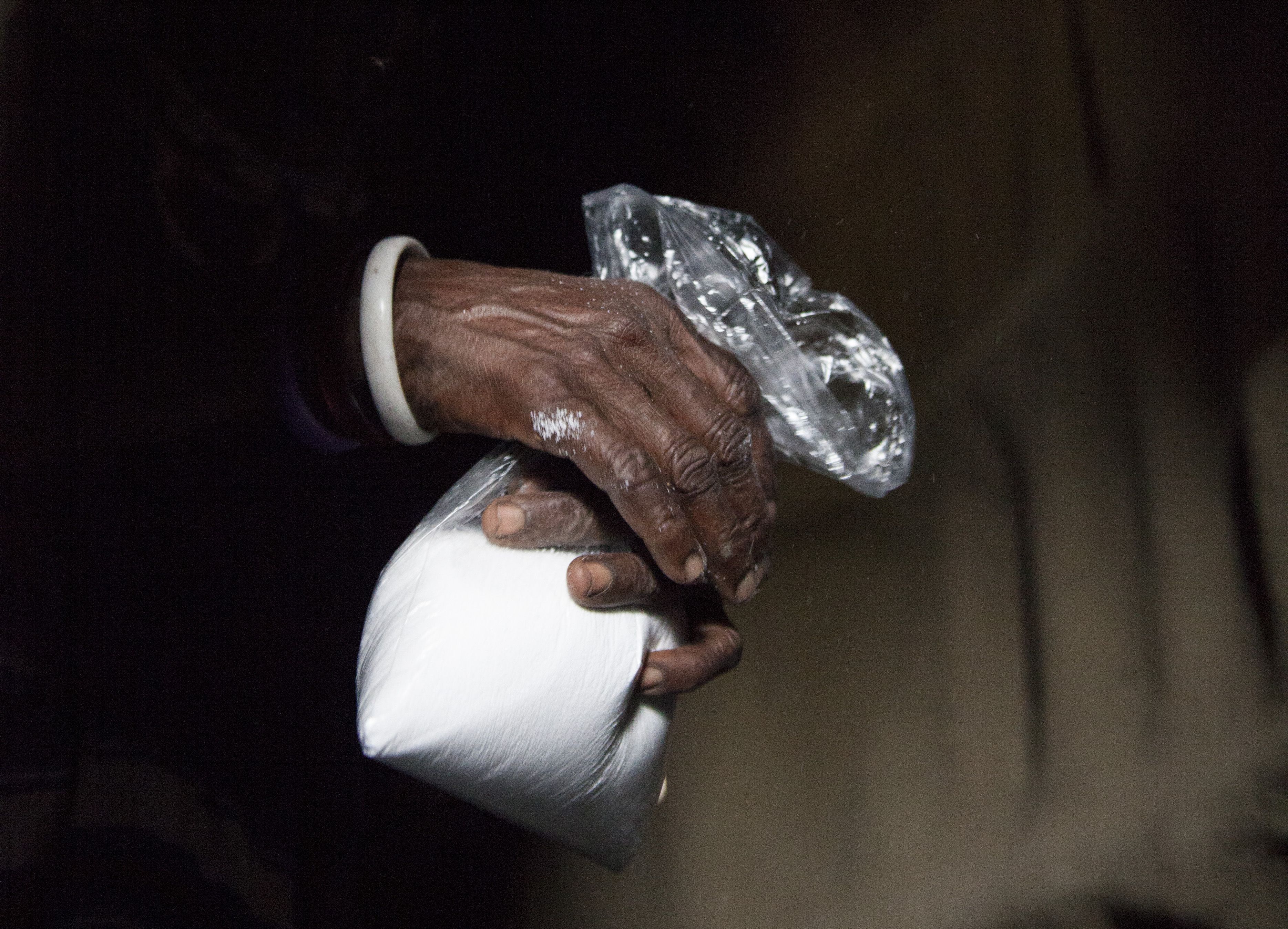
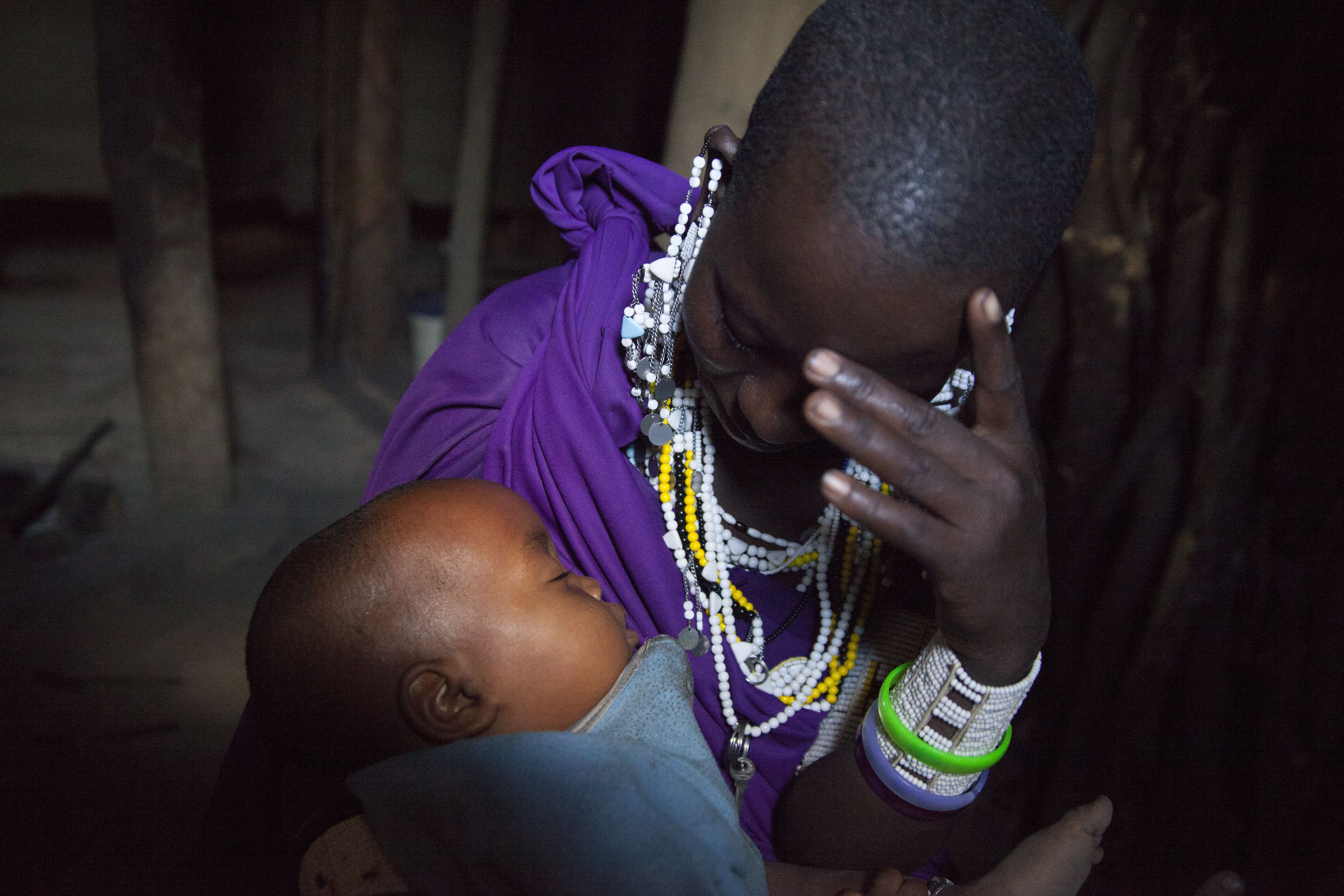
![The Kinapa [“We Carry Each Other”] women’s group meets beside the local primary school to discuss whether they should open a bank account in order to receive a loan from Namelock Sokoine, a candidate for Monduli district representative. After not meeting for two months, many voiced concerns about their group “falling asleep.” Image by Sydney Combs. Tanzania, 2015.](https://legacy.pulitzercenter.org/sites/default/files/styles/node_images_768x510/public/09-09-15/breaking_out_of_the_boma_sydney_combs_03.jpg?itok=34kmIeJu)

